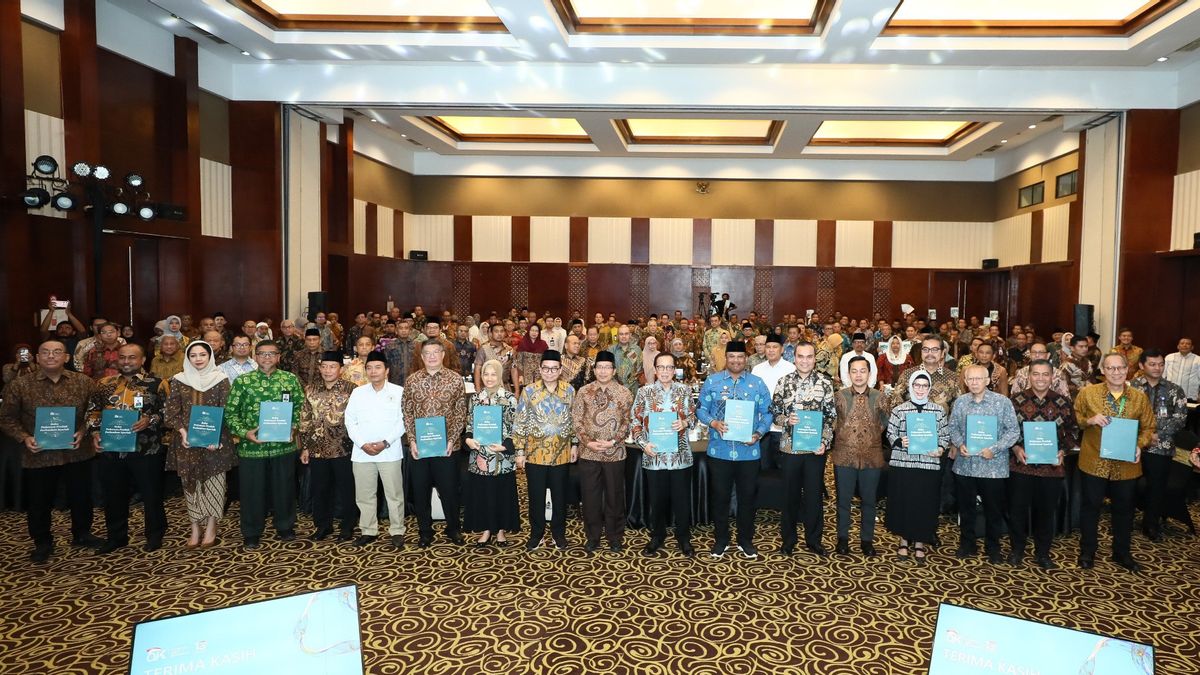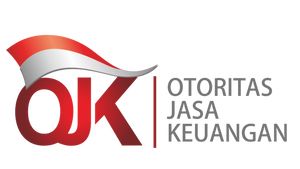JAKARTA - The Financial Services Authority (OJK) continues to encourage the strengthening of the characteristics of Islamic banking through the development of Islamic banking products that have sharia peculiarities or so-called 'ah-based products' so that they have a unique value proposition that conventional banking cannot do.
To support this effort, OJK issued three Islamic banking product guidelines which include: Guidelines for Mudurabah Financing Products, Guidelines for the Implementation of Shariah Restricted Investment Account (SRIA) with Akad Mudharabah Muqayyadah and Guidelines for the Implementation of Cash Waqf Linked Deposit (CWLD).
Chief Executive of Banking Supervision Dian Ediana Rae said that the issuance of this guideline is a form of OJK's commitment to strengthening the characteristics of Islamic banking with a strategy to develop the uniqueness of sharia products according to the Roadmap for the Development and Strengthening of Indonesian Sharia Banking (RP3SI) 2023-2027.
SEE ALSO:
"The guidelines for products that have been prepared by the OJK are expected to provide guidance for related industries and stakeholders in the implementation of Islamic banking products so as to provide equal views and understanding in implementation," said Dian in his statement, Sunday, October 27.
The three guidelines for Islamic banking products are expected to complement the previous OJK Regulation (POJK) with a more detailed and technical explanation and equipped with various examples and bookkeeping so as to make it easier for industry players in their implementation.
Guidelines For Temporarily Financing Products
Guidelines for Sharia Banking Mudurabah Financing Products are the third guideline after previously the OJK had issued Guidelines for Sharia Banking Murabahas Financing Products and Guidelines for Sharia Banking Musyarakah Financing Products, which were compiled with DSN-MUI, players in the Islamic banking industry and other stakeholders.
Murabah financing products are one of the products that has uniqueness and can be an alternative for the Islamic banking industry to diversify profit-based financing products other than the financing of musyarakah.
Dian emphasized the characteristics of customer financing based on profit-sharing and can be assessed as providing the concept of justice for banks and customers.
"Corruption financing products are one of the unique products and have high competitiveness because they carry a profit-sharing concept based on financed business performance. The potential for income fluctuations obtained is considered to better meet the concept of justice for banks and customers," said Dian.
Guidelines for Mudurabah Financing Products contain several things, including:
Schemes that can be carried out using the mudabah financing contract are equipped with illustrations and recording so that these guidelines become more comprehensive and facilitate the industry in the implementation of musyarakah financing.
Guidelines For The Implementation Of Shariah Restricted Investment Account (SRIA) With Akad Mudharabah Muqayyadah
Sharia banking has the potential to develop products with sharia peculiarities as a form of business model differentiation from conventional banking, especially investment-based transactions. To provide comprehensive and structured reference for the sharia banking industry in implementing SRIA, a SRIA Implementation Guideline was prepared with Akad Mudharabah Muqayyadah.
Dian said that SRIA and the Muqayyadah Mudharabah Akad are a follow-up to Law Number 4 of 2023 concerning the Development and Strengthening of the Financial Sector (UU P2SK) which has differentiated between Investment products and Deposit products in Islamic banking.
"In response to the P2SK Law, OJK introduced SRIA products with the Muqayyadah Mudharabah Akad, which is an investment scheme with a risk borne by Investors. This effort is part of OJK's efforts to strengthen the characteristics of Islamic banking as stated in the Roadmap for the Development and Strengthening of Indonesian Sharia Banking (RP3SI) 2023-2027," continued Dian.
The SRIA Implementation Guidelines were compiled by the OJK in collaboration with DSN-MUI, players in the Islamic banking industry and other stakeholders while still paying attention to the principles of prudence, risk management, governance, and consumer protection.
Guidelines for the Implementation of SRIA contain several things, including:
Cash Waqf Linked Deposit (CWLD) Implementation Guidelines
RP3SI encourages Islamic banking to transform through synergies with the sharia economic ecosystem, especially synergies with Islamic social finance to have a social-economic impact on society. One of the innovations of Islamic banking products developed by the OJK and has characteristics that conventional banking cannot implement is Cash Waqf Linked Deposit (CWLD).
CWLD is a temporary cash waqf-based product that involves the role of Nazhir Waqf Uang and Sharia Banks as Sharia Financial Institutions Recipient of Cash Waqf (LKS-PWU) in formulating waqf programs that can increase the potential for waqf and also improve the performance of Islamic banking.
Dian emphasized that the differentiation and uniqueness of CWLD based is different from conventional products and has an socio-economic impact.
Cash Waqf Linked Deposit (CWLD) is one of the products that has uniqueness, characteristics, and high competitiveness by combining commercial functions and social functions of Islamic banks simultaneously (creating shared value). This is expected to be a new breakthrough in the operations of Islamic banks, so that it can have an impact on the wider community and improve the performance of Islamic banks," explained Dian.
To provide clear and useful references for all players of the Islamic banking industry in developing and implementing CWLD, the OJK has prepared Guidelines for the Implementation of CWLD in collaboration with the Ministry of Religion (Kemenag), the Indonesian Waqf Agency (BWI), and the Islamic banking industry which has become LKS-PWU while still paying attention to the principles of prudence, risk management, governance, and consumer protection.
The CWLD Implementation Guidelines are drawn up to provide a comprehensive structured and reference framework in the process of implementing CWLD for Sharia Banks as LKS-PWU and Nazhir Cash Waqf.
Guidelines for CWLD Implementation contain several things, including:
Dian conveyed that the issuance of three guidelines for Islamic banking products is expected to be an important part for Islamic banking in developing more diverse, innovative, and highly competitive shari-based products, and ultimately contribute to inclusive and sustainable national economic growth.
The English, Chinese, Japanese, Arabic, and French versions are automatically generated by the AI. So there may still be inaccuracies in translating, please always see Indonesian as our main language. (system supported by DigitalSiber.id)















